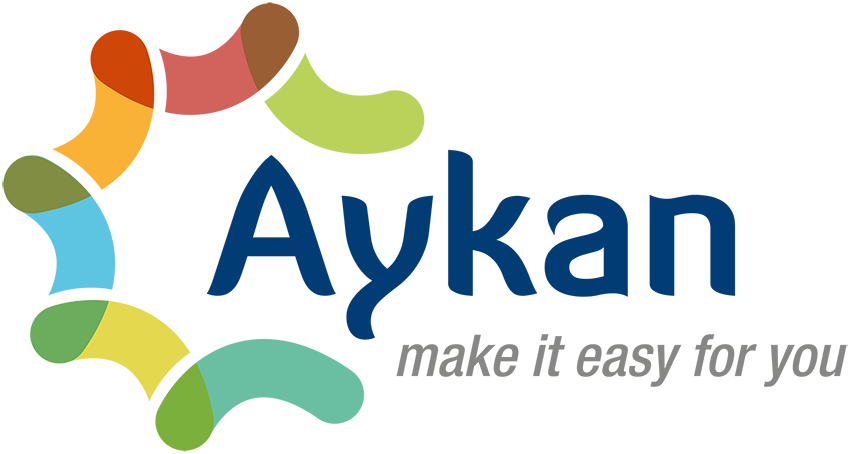Introduction
Launching a successful online marketplace is no small feat — it requires careful planning, the right technology, and a deep understanding of what users need on both sides of the transaction. Whether you’re building a Sharetribe marketplace for products, services, rentals, or digital goods, there are several core features that form the foundation of a smooth, trustworthy, and scalable platform. These features not only enhance user experience but also help build credibility, streamline operations, and drive conversions.
From secure payments and user profiles to search filters and review systems, every component plays a crucial role in the overall success of the platform. Sharetribe, a leading marketplace solution, offers built-in support and customization options for these key features, helping entrepreneurs and businesses bring their marketplace ideas to life efficiently.
In this article, we’ll explore the top 10 features every marketplace should have — and how Sharetribe makes it easy to implement them without starting from scratch.
What is the difference b/w marketplace and traditional website?
A marketplace and a traditional website differ primarily in their purpose, structure, and user interaction. A traditional website is typically designed for a single entity—such as a business, brand, or individual—to showcase information, products, or services directly to visitors. It’s usually a one-way interaction, where the site owner manages all content and transactions. In contrast, a marketplace is a multi-vendor platform that connects multiple sellers with multiple buyers, facilitating interactions, transactions, and often taking care of logistics like payments, reviews, and dispute resolution.
While a traditional website might function like a digital brochure or an online store for a single business, a marketplace acts more like an ecosystem, enabling third parties to list, sell, and manage their offerings within the platform.

Another major difference lies in the content and inventory ownership. On a traditional website, the site owner typically creates and controls all the content, listings, and products or services offered. In a marketplace, however, the platform owner facilitates user-generated content — sellers or service providers create their own listings, which the platform simply hosts and manages. This leads to dynamic, constantly updated content and often a much wider variety of offerings.
From a technical and operational standpoint, marketplaces are also more complex. They require systems for user onboarding (for both buyers and sellers), listing management, messaging, order handling, dispute resolution, and multi-party payments. Traditional websites, especially those offering static services or a single product catalog, often don’t require such multi-layered functionality.
Additionally, marketplaces rely heavily on network effects — their value increases as more users join. The more sellers there are, the more attractive the platform becomes for buyers, and vice versa. A traditional website doesn’t benefit from this dynamic; its growth depends primarily on marketing and brand reach rather than community participation.
Lastly, revenue models differ significantly. Traditional websites may earn through direct sales, subscriptions, or ads. Marketplaces, however, typically generate income through commissions on transactions, listing fees, membership tiers for sellers, or premium placement options, making them highly scalable if well-managed.
Top 10 features for every Marketplace
1. User Registration & Profile Management
Why it matters:
User registration is the first step toward creating a personalized and trustworthy marketplace experience. It allows buyers and sellers to identify themselves, build their reputations, and interact safely. Rich user profiles help build a sense of community and transparency. Having the ability to showcase certifications, business credentials, past work, and reviews improves trust and user decision-making. Marketplace owners can also use profile data to tailor services, match users more effectively, and analyze behaviors for platform optimization.

How Sharetribe Supports It:
Sharetribe provides a robust user authentication system including email verification, password recovery, and session management. It allows you to define and collect custom profile fields relevant to your niche—like business hours, areas of service, credentials, past projects, or language preferences. The profile data can be displayed dynamically on listings, used for filtering search results, or integrated into advanced workflows. Sharetribe’s API also supports third-party authentication and integration with external CRMs or marketing tools, enabling a cohesive user identity management strategy.
2. Listings with Advanced Search & Filters
Why it matters:
Listings are the core offering of a marketplace—be it services, products, or rentals. If users can’t find what they’re looking for quickly, they’ll leave. Search and filter functionalities ensure discoverability, relevance, and user satisfaction. A powerful search system makes it easy for users to browse large inventories, narrow down options by their preferences, and complete actions faster.

How Sharetribe Supports It:
Sharetribe enables the creation of detailed listing schemas with custom fields such as location, price, category, availability, and more. These fields are indexable and can be used in the filtering system to narrow down results. The search functionality includes keyword search, geolocation filtering, and configurable sorting. Sharetribe supports complex taxonomies (categories and subcategories) and tag-based searches. You can also implement dynamic filter logic, such as only showing listings that match both availability and price range, or integrating predictive search and auto-suggestions through external services.
Example: On a peer-to-peer rental marketplace like ToolShare, users can search by equipment type, brand, availability dates, and location radius to find the exact tools they need nearby.
3. Messaging Between Users
Why it matters:
In a marketplace environment, seamless communication between users is critical for building trust, clarifying expectations, and avoiding disputes. Buyers often have questions about a listing, such as availability, product details, or service scope, before making a purchase or booking. Likewise, sellers or providers may need to verify customer requirements, confirm logistics, or provide additional information. Without an effective communication system in place, these conversations can easily spill over to third-party platforms like email or WhatsApp, which not only breaks the user journey but also puts the transaction — and your platform’s commission — at risk.
A secure, well-structured in-platform messaging feature helps prevent misunderstandings, protects user privacy, and maintains transactional transparency. It also enables better support in case of disputes, as all conversation records are retained within the system.

How Sharetribe Supports It:
Sharetribe offers a built-in, secure messaging system tailored specifically for marketplace communication needs. Users can message each other directly through the platform, with each conversation tied to a specific listing or transaction, which ensures the context of the discussion is always clear. This structure is especially valuable during the transaction lifecycle — from inquiry to completion — as users can easily reference listing details or booking terms during their discussion.
The platform also allows admins to define messaging permissions. For example, you can allow messaging only after a user initiates a booking request or enable pre-transaction inquiries to facilitate lead generation. All messages are securely stored in the platform’s database and can be reviewed by admins if needed, offering a layer of safety and accountability.
4. Secure Payment Integration
Why it matters:
In any online marketplace, the way payments are handled can make or break user trust and platform credibility. Users must feel confident that their money is protected and that the transaction will proceed smoothly. From the buyer’s perspective, knowing that their payment is held securely until the product or service is delivered adds reassurance. From the seller’s perspective, being assured of a timely and legitimate payout builds trust in the platform.
A reliable payment system must also accommodate refunds, transaction fees, commissions, and cross-border transactions — all while adhering to strict security and compliance standards. Without secure and streamlined payment handling, your marketplace risks abandoned transactions, disputes, and regulatory issues.

How Sharetribe Supports It:
Sharetribe simplifies payment integration by offering native support for Stripe Connect, one of the most trusted payment gateways in the world. Through Stripe Connect, Sharetribe supports secure credit and debit card payments, automatic payouts to service providers or sellers, and full refund capabilities. This integration includes an escrow-like system that holds the buyer’s payment until the agreed-upon conditions are met — such as the delivery of a service or shipment of a product — significantly reducing the risk of fraud.
One of Sharetribe’s key strengths is its flexibility in commission management. Platform owners can easily define how commissions are calculated — whether as a percentage of the transaction, a flat fee, or a hybrid of both. These commissions can be charged to either party (buyer or seller), depending on the marketplace’s business model.
Example: A local services platform like HandyHive uses Sharetribe’s Stripe integration to securely hold payments until services like plumbing or cleaning are completed, then releases funds to the provider.
5. Booking & Availability Management
Why it matters:
In service-based and rental marketplaces, efficient and accurate scheduling is at the heart of user satisfaction. Whether someone is booking a vacation rental, hiring a freelance photographer, or reserving a piece of equipment, they need to know when it’s available and confirm their reservation quickly. Real-time availability reduces booking conflicts, enhances trust, and streamlines the decision-making process for users.
Without proper booking and scheduling features, platforms risk overbookings, missed appointments, customer frustration, and ultimately, lost revenue. Moreover, automated tools like reminders, time buffers, and cancellation policies significantly reduce no-shows and help both sides manage their time better — improving reliability and professionalism across the platform.

How Sharetribe Supports It:
Sharetribe provides a robust and flexible booking system designed specifically for marketplaces that depend on accurate time and availability management. It supports both hourly and daily booking formats, making it suitable for a wide variety of use cases — from short-term rentals and coaching sessions to equipment leasing and event bookings.
Providers can manage their availability using a customizable calendar. They can mark available and unavailable dates or time slots, set booking rules (like how far in advance a user can book), and even define buffer times between bookings to allow for restocking, travel, or preparation. This not only prevents scheduling errors but also supports a smooth operational flow for service providers.
Example:
Imagine a marketplace for professional services where users can book personal trainers. If Trainer A has a session booked from 9–10 AM, the platform should automatically mark that time slot as unavailable to prevent double-booking. The user sees only open time slots, selects one, and receives a confirmation with optional calendar sync and reminders. Trainer A also gets notified instantly and can manage bookings through their dashboard. This seamless workflow ensures both parties are aligned, minimizes confusion, and increases trust in the platform’s reliability.
6. Ratings & Reviews
Why it matters:
In marketplaces, where users often interact with strangers, trust is the foundation of every transaction. Ratings and reviews serve as a crucial mechanism for establishing credibility and accountability. When potential buyers or renters evaluate listings, they rely heavily on feedback from previous users to assess quality, reliability, and professionalism. Similarly, providers benefit from good reviews, which enhance their reputation and increase conversion rates. A transparent, unbiased review system encourages users to behave respectfully and provide quality service, knowing that their reputation is publicly visible and affects future opportunities.
Beyond trust-building, reviews offer valuable insights into what’s working and what needs improvement. They help new users make confident decisions, reduce uncertainty, and foster a more engaged, loyal community. Without a strong reputation system, marketplaces struggle with inconsistent service quality, user churn, and a lack of transparency.
How Sharetribe Supports It:
Sharetribe includes a built-in, double-blind review system, which is designed to be fair and impartial. In this setup, both the buyer and seller (or service provider) are prompted to leave reviews after a transaction. However, their feedback is only published once both parties have submitted their reviews or a set deadline (timeout) is reached. This prevents retaliatory or biased reviews and promotes more honest, constructive feedback.
Example:
Consider a peer-to-peer car rental marketplace. A renter browsing listings sees two similar cars, but one has 40 positive reviews praising its cleanliness and the host’s responsiveness, while the other has no feedback at all. Naturally, the renter is more inclined to choose the reviewed car. Meanwhile, the car owner with the positive reputation gets more bookings and can even command a higher price.
After the trip, both the renter and the car owner leave reviews about each other, helping future users make informed decisions and maintaining a high standard across the platform.
7. Dispute Resolution Tools
Why it matters:
In any online marketplace, disputes are inevitable — a service may not meet expectations, a product might arrive damaged, or a booking may be missed due to miscommunication. When these issues arise, users expect the platform to offer a fair, timely, and structured resolution process. If users feel unprotected or abandoned during conflicts, they may lose trust in the platform and take their business elsewhere. Worse, unresolved disputes can lead to chargebacks, legal risks, or negative reviews that damage your brand.
A reliable dispute resolution system not only helps in addressing individual cases effectively but also demonstrates the marketplace’s commitment to fairness, transparency, and customer care. It gives users the confidence to transact, knowing that the platform will support them in the event something goes wrong. Moreover, it helps maintain the overall health of the ecosystem by deterring bad actors and encouraging responsible behavior.

How Sharetribe Supports It:
Sharetribe provides comprehensive tools for dispute resolution through its admin panel and API infrastructure. Platform administrators have access to complete transaction histories, including timestamps, booking details, and all user communications related to the transaction. This makes it easier to evaluate disputes based on actual interactions and context, rather than speculation.
For platforms handling a high volume of user support requests, Sharetribe supports integration with leading helpdesk systems like Zendesk, Freshdesk, or Intercom. These integrations turn your marketplace into a full-featured case management system, where admins or support agents can track, categorize, and respond to disputes efficiently. Support tickets can be linked directly to transactions, making it easier to resolve issues without toggling between systems.
Example:
On a home-cleaning service marketplace, a customer might report that a cleaner did not show up or failed to complete the job satisfactorily. With dispute resolution tools in place, the user can submit a complaint through their dashboard, upload evidence (photos, messages), and request a refund or rebooking.
The platform’s support team can then review the case, mediate communication, and issue a fair outcome. This process reassures both customers and providers that the platform actively safeguards their interests and enforces accountability.
8. Analytics & Admin Dashboard
Why it matters:
Running a successful marketplace isn’t just about facilitating transactions — it’s about understanding how your users behave, what drives engagement, where revenue is coming from, and how to improve the overall experience. Without data, you’re operating in the dark. An analytics and admin dashboard enables data-driven decision-making, which is critical for growth, user satisfaction, and operational efficiency.
Marketplace operators need real-time access to key performance indicators (KPIs), such as the number of active users, popular listings, successful transactions, user retention rates, average order value, and geographic distribution of demand. These insights help you identify bottlenecks, test new features, optimize marketing campaigns, and predict future trends. With the right analytics in place, you can respond faster to issues, allocate resources more effectively, and strategically scale your business.

Sharetribe includes a comprehensive admin dashboard that allows marketplace operators to view and manage everything — from users and listings to bookings, reviews, and transactions. This centralized backend gives you control over the platform and insight into its health at a glance. Sharetribe empowers admins with a robust dashboard to track user activity, monitor bookings, manage listings, and identify trends or issues in real-time. You can view sign-ups, transactions, and performance data, and even export detailed reports for deeper analysis in tools like Excel or Google Sheets. For more advanced insights, Sharetribe integrates easily with tools like Google Analytics, Mixpanel, and Hotjar. Developers can also use the Integration API to build custom dashboards that display metrics like GMV, LTV, booking abandonment, and A/B testing results — enabling truly data-driven platform optimization.
9. Commission & Fee Management
Why It Matters:
A core component of any marketplace business model is how it makes money—and for that, having a flexible commission and fee structure is essential. Early-stage marketplaces might begin with a simple flat fee, but as the business evolves, it often needs to adopt more nuanced monetization strategies to stay competitive, attract quality providers, and optimize profitability.
Whether you’re running a service-based, rental, or product marketplace, the ability to control who pays fees (buyers, sellers, or both), what kind of fees are applied (percentage-based, fixed, or tiered), and when they’re charged (upfront, post-transaction, or subscription-based) is critical.

How Sharetribe Supports It:
Sharetribe provides a highly customizable commission and fee system that lets you define who pays (buyer, seller, or both), what type of fee to apply (fixed, percentage, or hybrid), and when it’s charged (e.g., at booking or completion). Using the Transaction Process Editor, you can set tiered pricing, category-based fees, or premium upgrade charges without touching core code.
The platform automatically applies and tracks fees, offers transparent invoicing, and supports incentives like reduced commissions for verified users. It also enables subscription billing and integrates with third-party financial tools, giving you full control to scale and evolve your monetization model.
Example:
In a talent marketplace, you might charge sellers (freelancers) a 15% commission on completed jobs, while buyers pay a flat $5 service fee per booking. For top-rated sellers, you may reduce the commission to 10% as a loyalty incentive — or introduce a premium seller subscription to eliminate commissions entirely. Without a flexible system, applying such nuanced strategies would be complex or impossible.
10. Mobile Optimization & Responsive Design
Why it matters:
In today’s digital landscape, the majority of users access online platforms—especially marketplaces—via mobile devices. If your marketplace doesn’t perform well on smartphones or tablets, you risk losing users to competitors with better mobile experiences. A poorly optimized mobile interface leads to high bounce rates, reduced engagement, and lower conversions. Whether users are browsing, messaging, booking, or paying, every interaction must be seamless on mobile. That’s why mobile responsiveness isn’t optional—it’s essential.

How Sharetribe Supports It:
Sharetribe is built with mobile in mind. All default templates are fully responsive, ensuring that the layout, content, and functionality automatically adjust across various screen sizes—phones, tablets, and desktops. This means users can comfortably navigate your marketplace and complete transactions from any device without usability issues.
For a more app-like experience, Sharetribe supports Progressive Web Apps (PWAs), which blend the best of web and native apps. PWAs can be installed on a user’s device, offer offline capabilities, and support fast loading—even on slow connections. They’re a powerful option for mobile-first strategies without the need to build a full native app.
Why is the Traditional Website not suitable for a Marketplace?
A traditional website is typically designed for one-way communication or single-entity transactions — such as a business presenting its services or selling its own products. It lacks the structural complexity needed to support interactions between multiple user types, such as buyers and sellers, service providers and customers, or renters and owners. Marketplaces, on the other hand, require a dynamic, multi-user environment where users can create accounts, list offerings, search and filter options, communicate with each other, handle bookings or purchases, and process payments securely — all within a controlled, trust-based framework.
Traditional websites do not natively offer these capabilities, which are essential for managing user roles, automating transactions, enabling feedback loops (like reviews and ratings), and scaling operations. Trying to retrofit a traditional website into a marketplace usually results in limitations, security vulnerabilities, and a poor user experience. For this reason, platforms like Sharetribe — purpose-built for marketplace functionality — offer the tools and architecture needed to efficiently run and grow an online marketplace.
Why Choose Sharetribe?
Choosing Sharetribe for building your online marketplace offers a powerful combination of speed, flexibility, and scalability. Unlike building a marketplace from scratch, which can take months of development and significant investment, Sharetribe provides a ready-to-use foundation with all the essential marketplace features — such as user management, listings, payments, messaging, reviews, and more. It’s specifically designed to support multi-vendor or peer-to-peer platforms, making it ideal for product-based, service-based, or rental marketplaces. With Sharetribe, you can launch quickly and customize extensively through APIs and integrations as your platform grows.
It also ensures data security, mobile responsiveness, and supports multiple monetization strategies like commissions or subscriptions. Whether you’re a startup testing a new idea or a business scaling to thousands of users, Sharetribe offers a reliable, future-proof solution tailored for modern marketplace needs.
Conclusion
Building a successful online marketplace requires more than just a functional website — it demands a well-thought-out ecosystem where users can connect, transact, and build trust. From secure payments and robust user profiles to smart search filters and scalable booking systems, every feature plays a vital role in user satisfaction and platform growth.
Sharetribe stands out as a purpose-built solution that not only covers these essential features but also empowers entrepreneurs and businesses to launch quickly, customize deeply, and scale confidently. Whether you’re starting a niche rental marketplace or a large-scale service platform, Sharetribe gives you the tools, flexibility, and support to bring your vision to life.
FAQ's
1. What makes a marketplace different from a traditional e-commerce website?
A traditional website typically sells products or services from a single brand or business, while a marketplace brings together multiple buyers and sellers on one platform. Marketplaces rely on network effects — they become more valuable as more users join — and typically generate revenue through commissions, listing fees, or memberships, rather than direct product sales.
2. Is Sharetribe suitable for both product-based and service-based marketplaces?
Yes, Sharetribe supports both models. Whether you’re building a marketplace for renting equipment, offering freelance services, or selling handmade goods, Sharetribe provides customizable listing types, booking capabilities (hourly/daily), and flexible transaction flows to fit your specific niche.
3. Can I customize the design and features of my Sharetribe marketplace?
Absolutely. Sharetribe offers full customization through APIs and a powerful developer toolkit. You can modify the user interface, listing flows, commission rules, messaging features, and more. Whether you’re using the default templates or building a fully custom front-end, Sharetribe gives you the flexibility to tailor the platform to your brand and business model.
4. How does Sharetribe handle secure payments and commissions?
Sharetribe integrates with Stripe Connect to enable secure payments, refunds, and payouts. It supports escrow-like payment handling, multi-currency support, and allows you to define commission rules (percentage, flat fee, tiered). Everything is automated, transparent, and compliant with international financial regulations.
5. Can I monetize my marketplace in multiple ways using Sharetribe?
Yes, Sharetribe supports various monetization strategies including commissions (from buyers, sellers, or both), fixed fees, premium listing upgrades, and subscription billing. You can apply dynamic commission rules based on category, volume, or user type, giving you full control over how you generate revenue.








